Search Definitions
Browse Content (p. 23)
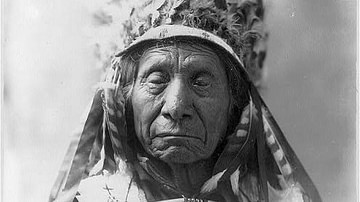
Definition
Red Cloud
Red Cloud (Makhpiya-luta, l. 1822-1909) was an Oglala Lakota Sioux chief, statesman, and military strategist who became the only Native American leader of the Plains Indians to win a war against the United States. Red Cloud's War (1866-1868...
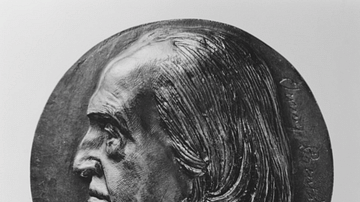
Definition
Jeremy Bentham
Jeremy Bentham (1748-1832) was an English philosopher and liberal social reformer best known as the founder of utilitarianism based on the greatest happiness principle, that is, rationally judging the success of a law by considering how many...
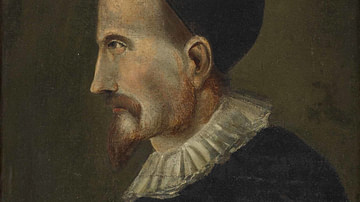
Definition
Antoine de Chandieu
Antoine de Chandieu (l. 1534-1591) was a French theologian, who played a decisive role in the religious history of the 16th century but remains in the shadow of other French Protestant leaders. Due to his remarkable abilities and contribution...

Definition
Colonel Tye
Colonel Tye (c. 1753-1780) was an African-American Loyalist leader who commanded one of the most effective guerilla forces of the American Revolutionary War (1775-1783). Born into slavery, he escaped in 1775 and joined the British cause...
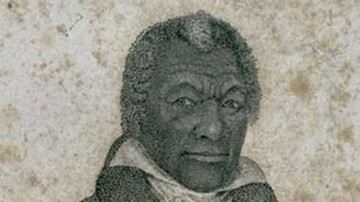
Definition
James Armistead Lafayette
James Armistead Lafayette (l. c. 1748-1832) was an African American Patriot who served the Continental Army as a spy during the American Revolutionary War (1775-1783). During the Siege of Yorktown, he infiltrated the British camp to bring...
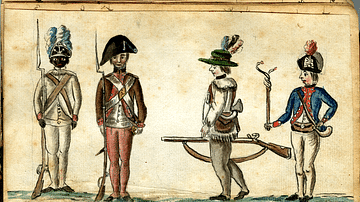
Definition
1st Rhode Island Regiment
The 1st Rhode Island Regiment, also known as Varnum's Regiment or the Black Regiment, was a regiment of the Continental Army during the American Revolutionary War (1775-1783). It was notable for being the first American military unit to consist...
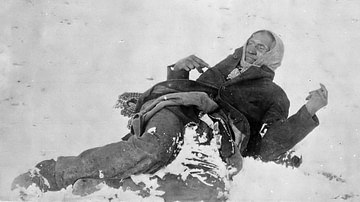
Definition
Wounded Knee Massacre
The Wounded Knee Massacre of 29 December 1890 was the slaughter of over 250 Native Americans, mostly of the Miniconjou people of the Lakota Sioux nation, by the US military at Wounded Knee Creek, South Dakota. Although the US government defined...
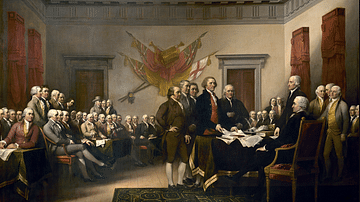
Definition
Social Contract
The social contract is an idea in philosophy that at some real or hypothetical point in the past, humans left the state of nature to join together and form societies by mutually agreeing which rights they would enjoy and how they would be...
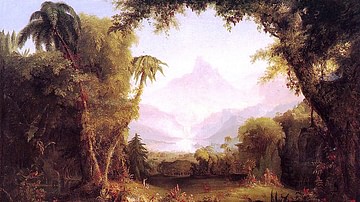
Definition
State of Nature
The state of nature is an idea which became especially popular with certain philosophers during the Enlightenment, notably Thomas Hobbes (1588-1679), John Locke (1632-1704), and Jean-Jacques Rousseau (1712-1778). It refers to a state of existence...

Definition
Ghost Dance
The Ghost Dance (Spirit Dance) is an expression of rebirth and renewal using the traditional Native American circle dance, first practiced by the Paiute Nation in 1869 and again in 1889 when it was adopted by other Plains Indians nations...